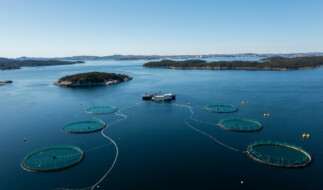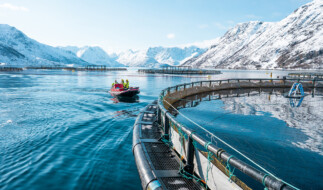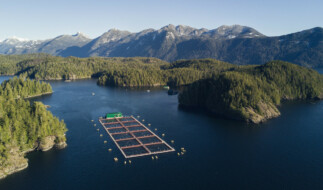FARMED SALMON: LOW IN MERCURY, HIGH IN HEALTH BENEFITS
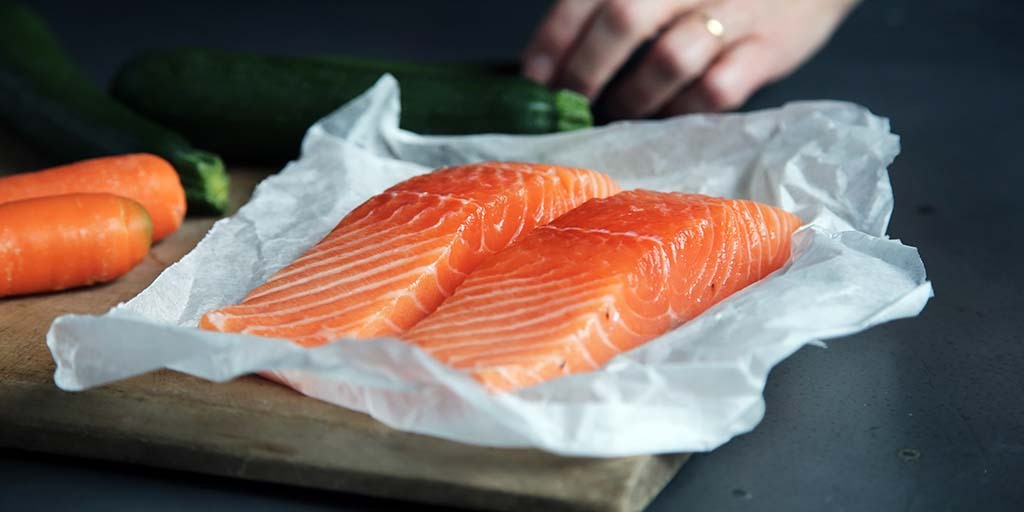
It’s not uncommon to hear that some people may avoid or limit their seafood intake due to concerns over mercury levels. For farmed salmon, however, this does not need to be the case. It’s one of many seafood varieties recommended as a “best choice” option because it’s packed with essential nutrients while being low in mercury. For this reason, food safety experts advise consuming two portions of seafood, like salmon each week. For this reason, food safety experts advise that the health benefits of regularly enjoying low-mercury seafood options outweigh any concerns posed by mercury.
What’s the connection between mercury and seafood?
Mercury is a naturally occurring element in the earth’s crust. It can be released into air or water in a variety of ways – like a volcanic eruption or forest fire, or most often, through human activities like the burning of fossil fuels. The release of mercury is what causes a concern to human and environmental health. Industrialization has added “fuel to the fire,” so to speak, making mercury an even greater concern as it has increased its presence in our environment. When mercury enters water, it turns into methylmercury, which collects in sediment and travels up the food chain.
As a result, methylmercury is present in all fish and shellfish to some degree, but the amount of mercury depends on the location and varies from species to species. Once mercury is in a fish’s system, it does not go away. It accumulates over time, reaching higher levels especially in larger fish that eat smaller fish. That is why the most high-risk fish for mercury levels are larger, carnivorous fish like shark, swordfish and tuna.

Farmed salmon is one of many low-mercury seafood options you can enjoy without worry.
What’s the connection between mercury and health?
Methylmercury is toxic and because it builds up in one’s system over time, mercury poisoning is a concern. Mercury poisoning in humans can harm brain function, damage the nervous system, and weaken heart health. This is of particular concern for women who are pregnant or lactating, and for children, as fetuses and children are more sensitive to mercury than adults.
That sounds alarming, but it’s highly unlikely the average person would experience mercury poisoning and food safety experts advise that the health benefits of regularly enjoying low-mercury seafood options outweigh any concerns posed by mercury. And the good news is, there are abundant choices of low-mercury seafood options – like salmon – to enjoy without worry.
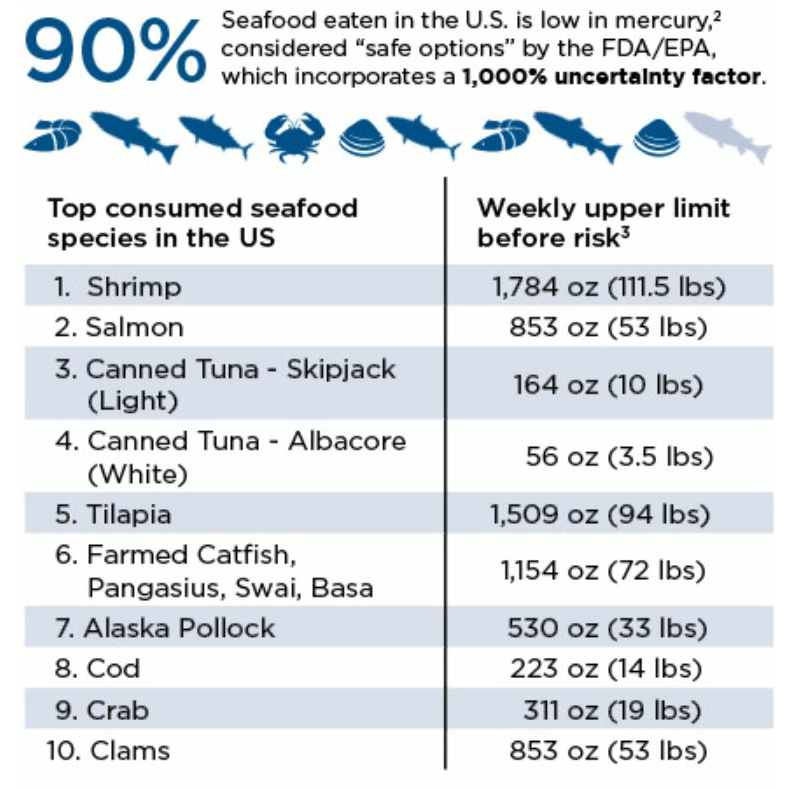
90% of seafood eaten in the U.S. is low in mercury and considered “safe options” by the FDA/EPA. Image Source: Seafood Nutrition Partnership, Mercury in Seafood: What You Need to Know.

Farmed salmon is a versatile seafood option.
Farmed salmon is a smart, safe and sustainable seafood choice
- Salmon is low in mercury. Both wild and farmed Atlantic salmon have much lower mercury levels than most other fish species. Farmed salmon has on average, 0.05 micrograms of mercury per gram. This is well below the levels deemed safe for women and children by the FDA and EPA, which inform the United States Dietary Guidelines for Americans (DGA).
- It’s recommended as a “best choice” seafood option. The Food & Drug Administration (FDA) recommends salmon as one of the best seafood choices for a safe and healthy diet, particularly for women who are or might become pregnant, breastfeeding mothers, and young children. Both the FDA and DGA recommend regularly enjoying low-mercury seafood, including salmon, two to three servings a week.
- Salmon is high in healthy omega-3 fatty acids, EPA and DHA. According to a joint report by the FAO and WHO, farmed Atlantic salmon contains more than 15 grams of EPA and DHA per gram, and 0.05 micrograms of mercury per gram, making it one of the best options for having a high EPA and DHA and low mercury ratio.
 Farmed Atlantic salmon contains more than 15 grams of EPA/DHA per gram, and just 0.05 micrograms of mercury per gram.
Farmed Atlantic salmon contains more than 15 grams of EPA/DHA per gram, and just 0.05 micrograms of mercury per gram.
- Beyond its health benefits, farmed salmon is also a climate-friendly source of nutrition. Compared to other forms of protein, farmed salmon has a lower carbon footprint, requires less land and uses feed resources more efficiently.
In summary, you can feel assured that enjoying seafood twice a week offers many nutritional benefits and outweighs any potential harms of mercury.
GSI members are committed to raising farmed salmon that is better for people and planet, which includes ensuring that their salmon remains a safe, healthy and low in mercury.


